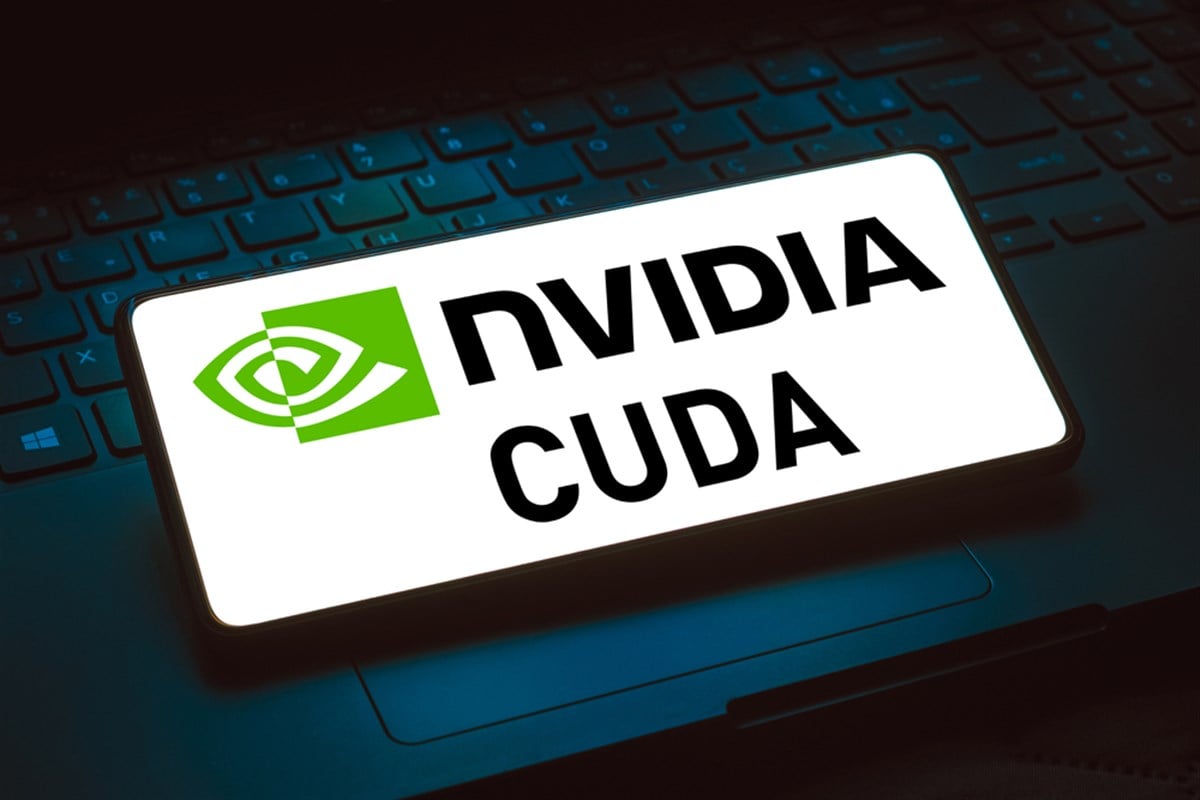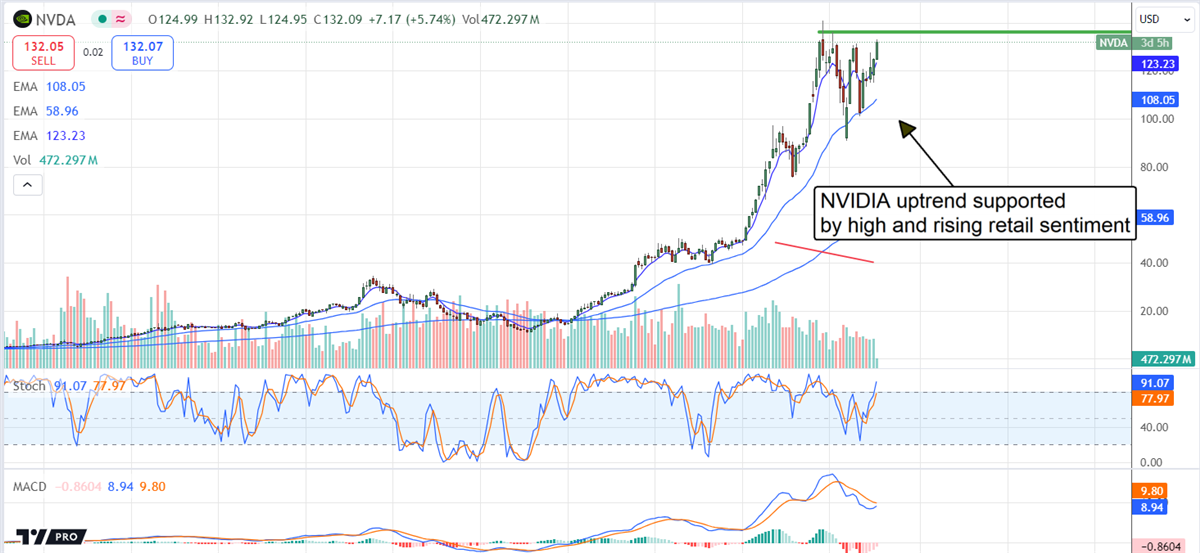
NVIDIA (NASDAQ: NVDA) remains a favorite for retail investors for many reasons, all centering on AI.
The company’s technological advancements unleashed a sleeping beast, and its position in the industry is now unrivaled.
The critical takeaway is that NVIDIA is a favorite of more than retail investors, and the market sentiment will likely drive the stock price higher in 2025 because of results, outperformance, and guidance.
Here’s a look at some of the reasons why.
NVIDIA Has a Deep Moat
Other semiconductor labs have equally good GPUs; some perform better for specific tasks, but none have NVIDIA's full-stack offerings. NVIDIA’s success is centered on its GPUs but is primarily due to CUDA. CUDA is the acronym for Compute Unified Device Architecture and why NVIDIA GPUs are in such high demand. CUDA is an alternate operating system that allows developers to use the GPU or graphic processing device for general-purpose computing, not just graphics. Because the GPUs can run numerous computing loads in parallel, they are perfect for the high-volume computing needs of AI. Without CUDA, NVIDIA-powered AI would still be a dream.
What this means for NVIDIA is that it is no longer simply a semiconductor stock. Now, NVIDIA is critical to AI, cloud, and Internet infrastructure, providing the hardware to build the most advanced data centers, the software to operate them, and services built upon both. NVIDIA’s newest offerings are off-the-rack AI models, AI-powered generative services, and enterprise-grade software.
NVIDIA’s Is in Hyper-Growth Phase: Outperforming Expectations
NVIDIA’s growth topped 200% quarterly in late 2023 and early 2024, signaling significant market dynamics and demand shifts, permanently altering the company’s trajectory. The growth slowed in late 2024, sapping investor appetite, but that is the only negative detail. The upshot is that the company’s growth continues robustly at a near-100% pace in 2024 despite the sequential slowdown and is expected to continue at a solid, hyper-growth pace in 2025. Looking forward, analysts expect revenue to grow by another 40% to 50% in 2025 and are likely underestimating the company’s position and industry demand.
Investors should remember that the 80% growth projected for Q3 2024 is down from last year’s 205%, but the decline is due largely to the law of large numbers, and 80% is still a very, very solid figure. Looking at the data in dollar value terms, 80% growth in Q3 2024 is worth $16.5B compared to roughly $12.25 billion in growth in 2023. That’s 135% of the 2023 Q3 dollar value growth, and outperformance is also expected in 2024.
NVIDIA has outperformed the consensus estimates 100% of the time since Q3 2022 and only missed consensus once since before 2020. Outperformance since 2023 has been compounded by increased guidance, often running 500 basis points or more above the consensus forecasts, which is also expected to continue. Recent commentary from Super Micro Computers, which wowed investors with projections for shipments of its latest GPU products, aligns with that outlook.
Stock Splits, Dow Inclusion, and Dividends
NVIDIA’s stock split fueled investor appetite for more reasons than one. At face value, the split made shares more accessible to smaller investors and suggested that upward momentum in the share price would continue. Stocks that split shares tend to outperform the S&P 500 by 2:1 and NVIDIA’s business is clearly outperforming the average S&P 500 company, so higher share prices are expected.
Coincidentally, another stock split is likely, given the share price outlook. The split also raised hopes that NVIDIA would be included in the Dow Jones Industrial Index, which would increase buying because of demand from indexed ETFs, mutual funds, and other Dow followers.
Another catalyst eyed by retail investors is the dividend. NVIDIA’s dividend isn’t robust but reliable, and growth is expected. The surge in earnings power resulted in significant cash buildup, with positive cash flow expected to remain robust, raising the chances for significant distribution increases. As it is, the $0.01 per share distribution is worth about 0.03% in yield and only 1% of the earnings outlook. Share repurchases also compound the dividend. Repurchases in FQ2 reduced the quarterly count by 0.6% on average and are expected to continue at the current pace or higher.
Analysts Lead NVIDIA to a New All-Time High
The analysts' support is another reason retail investors like NVIDIA. The analysts are overwhelmingly bullish, with 43 rating the stock as a consensus Buy and 90% rating it as Buy or Better. The price target, which assumes more than 10% upside from the critical resistance target, is also trending higher, leading to the high-end range near $175 or about 40% upside from the critical level. The critical level is near $135 and could be broken before the FQ3 results are released in November. If so, the technical targets the move would produce align with the high end of the analyst range.





